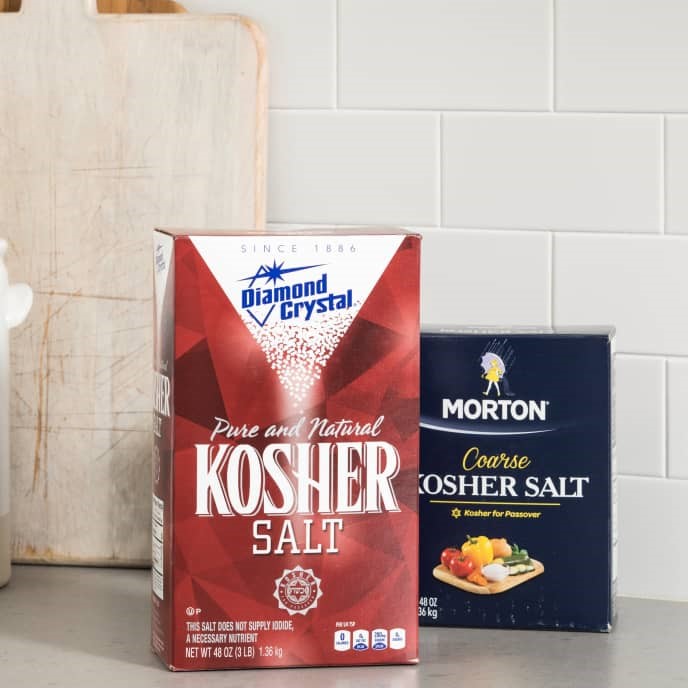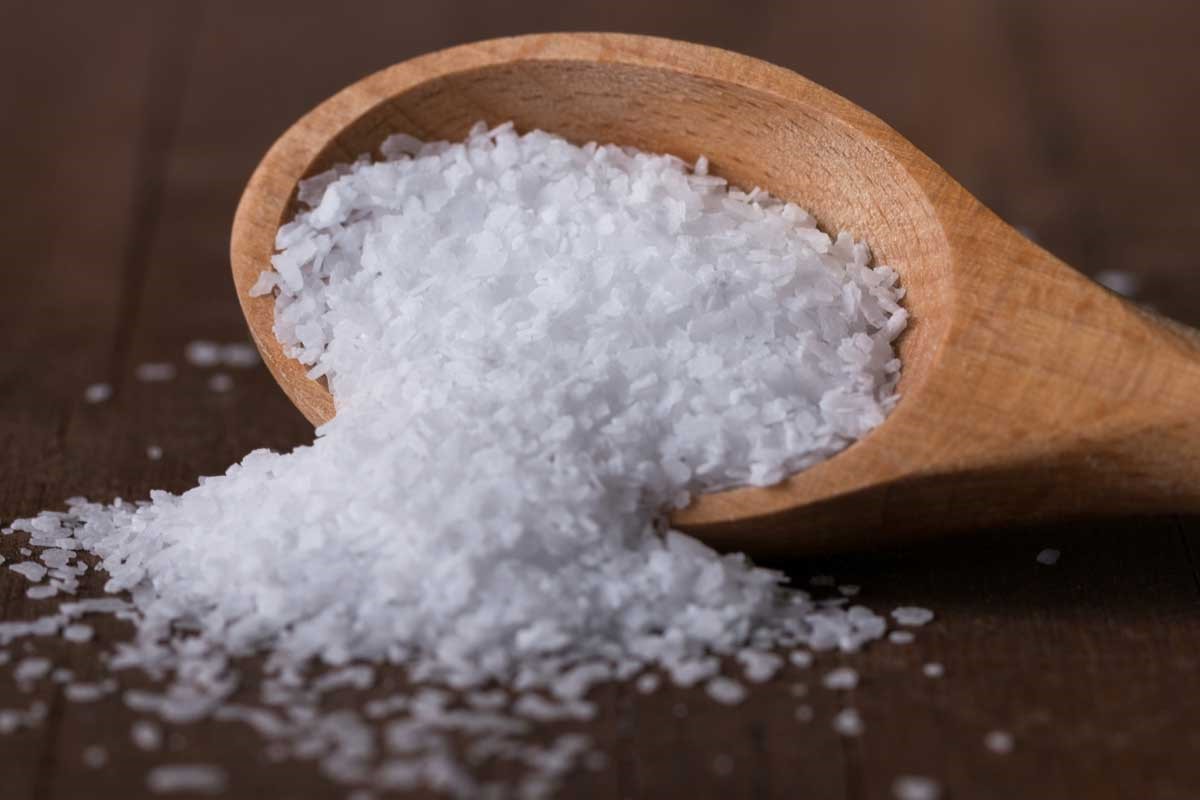Clever Cooks Know How to Make It Work!
Nelson Mandela’s quote, “Let there be work, bread, water, and salt for all” shows you just how important salt is. Including this timely ingredient in a crucial speech implies a few things.

For my purpose with this article, I’ll focus on President Mandela’s assertion that everyone has the right to good things, especially tasty food. We’ve all had bland food that was brought to life by the addition of a little salt.
While we don’t want to overdo it, food without salt is on the disappointing side, don’t you think?
So let’s talk about salt—kosher to be exact. Kosher salt, with its coarse grain, is superb for seasoning foods because it is easy to sprinkle evenly with your fingers. It can be a pretty good substitute, too, if you run out of your traditional table salt.
However, the experts over at America’s Test Kitchen say that in baking, coarseness can be problematic. But if it happens to be all you want to use, or all you have on hand, there are ways to make kosher salt work.

First of all, stuff that’s good to know: The Test Kitchen pros use breads and cakes (items that involve the addition of a good amount of liquid or moisture) as an example of things that can usually be made successfully with kosher salt. But in baked goods that contain nominal amounts of liquid (cookies are a good example), fine-grained table salt is a much better choice because its diminutive grain is more easily distributed and dissolved.
In cookies and pie pastry made with kosher salt, the salinity is harsh and uneven. So with each bite, small bursts of salt will be tasted wherever the undissolved salt grains happen to land on the tongue. Not pleasant when expecting a sweet experience.

BUT, all this said, there is a way to make it work in baking. One way is to pulverize it in a mortar and pestle. You want to grind it as fine as you can—as close to the texture of table salt as you can get it. If you don’t have a mortar and pestle, however, you can also put your kosher salt in a blender and process it on high for about 15 seconds or so. You don’t want salt powder, which easily happens if you let it process too long, so be sure to trim down the processing time.
Other ways to create a finer grained salt out of kosher is to crush it using the back of a spoon (though this is the least effective approach). You can also put some in a zippered plastic bag, covered the bag with a towel, and pounded it with a hammer (again, not the most effective approach, but works in a pinch).

You’re getting the point, I’m sure: a good cook sometimes has to be a clever cook. When you run out of salt, but there’s that box of kosher lurking in the back of your cupboard, pull it out and do some substituting. Clever cooks know how to make it work!

For my purpose with this article, I’ll focus on President Mandela’s assertion that everyone has the right to good things, especially tasty food. We’ve all had bland food that was brought to life by the addition of a little salt.
While we don’t want to overdo it, food without salt is on the disappointing side, don’t you think?
So let’s talk about salt—kosher to be exact. Kosher salt, with its coarse grain, is superb for seasoning foods because it is easy to sprinkle evenly with your fingers. It can be a pretty good substitute, too, if you run out of your traditional table salt.
However, the experts over at America’s Test Kitchen say that in baking, coarseness can be problematic. But if it happens to be all you want to use, or all you have on hand, there are ways to make kosher salt work.

First of all, stuff that’s good to know: The Test Kitchen pros use breads and cakes (items that involve the addition of a good amount of liquid or moisture) as an example of things that can usually be made successfully with kosher salt. But in baked goods that contain nominal amounts of liquid (cookies are a good example), fine-grained table salt is a much better choice because its diminutive grain is more easily distributed and dissolved.
In cookies and pie pastry made with kosher salt, the salinity is harsh and uneven. So with each bite, small bursts of salt will be tasted wherever the undissolved salt grains happen to land on the tongue. Not pleasant when expecting a sweet experience.

BUT, all this said, there is a way to make it work in baking. One way is to pulverize it in a mortar and pestle. You want to grind it as fine as you can—as close to the texture of table salt as you can get it. If you don’t have a mortar and pestle, however, you can also put your kosher salt in a blender and process it on high for about 15 seconds or so. You don’t want salt powder, which easily happens if you let it process too long, so be sure to trim down the processing time.
Other ways to create a finer grained salt out of kosher is to crush it using the back of a spoon (though this is the least effective approach). You can also put some in a zippered plastic bag, covered the bag with a towel, and pounded it with a hammer (again, not the most effective approach, but works in a pinch).

You’re getting the point, I’m sure: a good cook sometimes has to be a clever cook. When you run out of salt, but there’s that box of kosher lurking in the back of your cupboard, pull it out and do some substituting. Clever cooks know how to make it work!
 Alice Osborne
Alice Osborne
Weekly Newsletter Contributor since 2006
Email the author! alice@dvo.com
